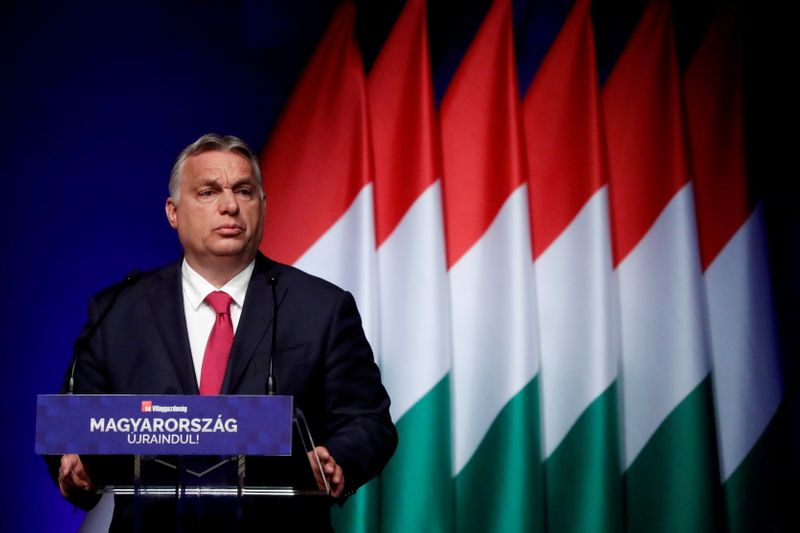BUDAPEST (Reuters) – Hungarian Prime Minister Viktor Orban said on Wednesday a proposed global minimum corporate tax is “absurd” and his government would need to consider contingency plans if the initiative goes through.
The Organization for Economic Cooperation and Development (OECD) has been coordinating negotiations among 140 countries for years on rules for taxing cross-border digital services and curbing tax base erosion. A global corporate minimum tax is one of the major tools under consideration.
Finance ministers from the Group of Seven (G7) rich nations reached a landmark accord last week backing the creation of a global minimum corporate tax rate of at least 15%, a deal that could then form the basis of a worldwide accord.
Orban said his government opposed the move as it went against efforts to attract foreign investment with low taxes.
Hungary’s 9% corporate tax rate is among the lowest in the 27-member European Union and has used it to attract major investments in its car and manufacturing sectors that have lifted economic growth and employment, helping the conservative nationalist Orban hone an image of strong economic management.
“I consider it absurd that any world organisation should assert the right to say what taxes Hungary can levy and what taxes it cannot,” said Orban, who faces his first competitive election next year after a string of landslide victories since 2010.
“Especially as we are not a tax haven, because the low Hungarian corporate tax rate is not meant to attract certain companies to declare their taxes here,” he told a business conference.
Orban said Hungary’s corporate tax policy has helped lure real investments and create jobs in the central European country of 10 million people, which relies heavily on foreign investment and European Union funds to drive economic growth.
He said his government would need to draw up contingency plans if the tax plan does go through. This would ensure that companies falling under its scope in Hungary need not pay higher taxes overall as that would lead to job losses.
Hungarian Finance Minister Mihaly Varga said the global tax could affect 2,000 to 3,000 major companies in Hungary.
Ireland, another EU member with a low corporate tax rate, also opposes the global minimum levy idea and has embarked on a damage limitation exercise it hopes will let it and other low-tax economies retain some of their decades-old advantages.
(Reporting by Gergely Szakacs; Editing by Mark Heinrich)



















